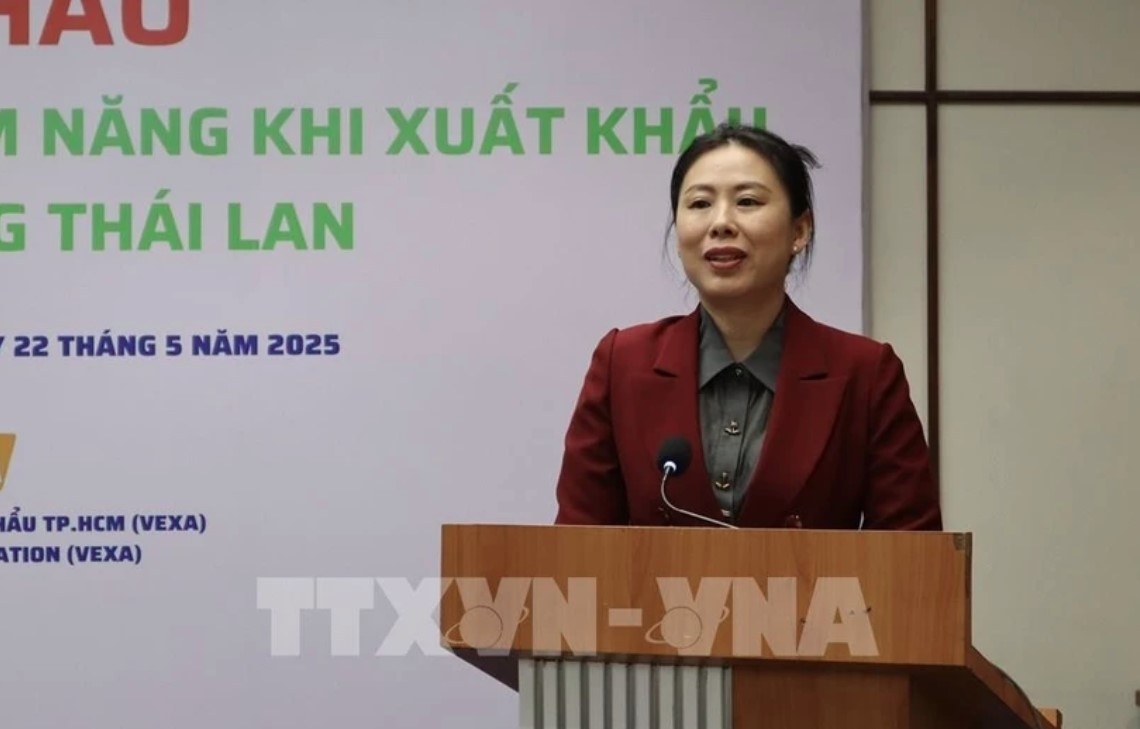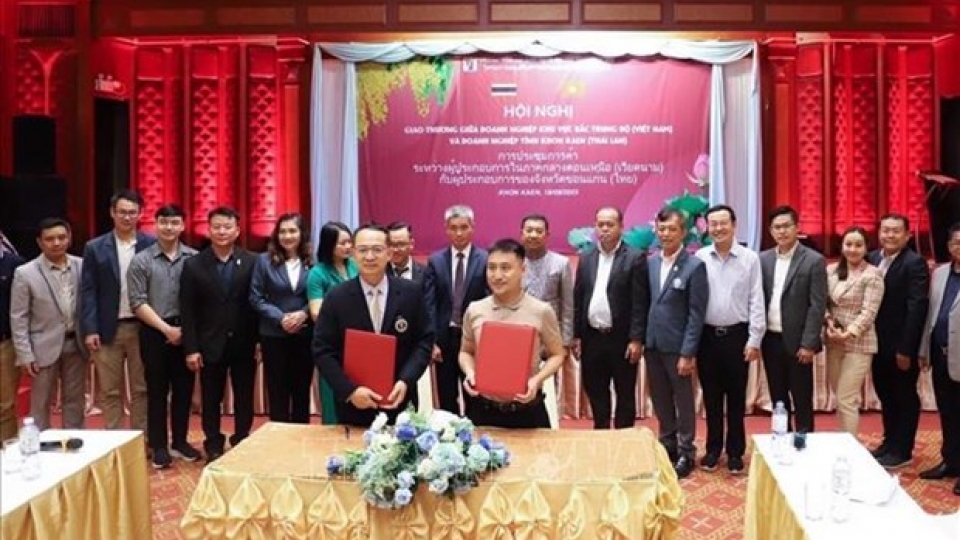Conference looks to promote Vietnamese exports to Thailand
Understanding Thai consumer preferences and complying with strict regulatory standards will help Vietnamese firms effectively tap this potential market, experts said at a conference held by the Investment & Trade Promotion Centre of Ho Chi Minh City (ITPC) and Central Retail Vietnam on May 22.

ITPC Deputy Director Ho Thi Quyen laid stress on the robust Vietnam – Thailand economic cooperation, becoming a pillar in the strategic partnership between the two countries. With their proximity and convenient transportation links through East-West and Southern economic corridors, both countries have capitalised on their advantages to promote cooperation in trade, investment, and logistics.
Thailand consistently ranks as Vietnam’s top trade partner within ASEAN, while Vietnam is Thailand’s second largest partner in the region. They have been signatories to various trade agreements, particularly the ASEAN Trade in Goods Agreement (ATIGA) and the Regional Comprehensive Economic Partnership (RCEP), which have helped reduce tariffs while facilitating enterprises’ establishment of supply and production chains as well as third-country market expansion.
Last year, two-way trade topped US$20.26 billion, up 6.36% year-on-year. Vietnam's exports to Thailand totalled US$7.81 billion, with key export items including mobile phones and components, machinery and equipment, iron and steel, computers, electronic products, and agricultural products such as fresh fruits, seafood, and coffee. Meanwhile, the country spent US$12.45 billion on Thai imports, dominated by machinery and equipment, complete automobiles, electronic components, and household appliances.
Quyen said 2025 marks a milestone in bilateral trade ties as the two countries eye to bring their two-way trade to US$25 billion in a more balanced and sustainable manner.
The two Governments are pushing ahead the three-connection strategy, including enhancing supply chain and distribution collaboration, strengthening links between industries, localities, and enterprises, and aligning both nations’ sustainable growth strategies.
Quyen noted that the recent upgrade of bilateral ties to a comprehensive strategic partnership ushers in a new chapter in the Vietnam-Thailand cooperation. With a population of over 70 million and rising purchasing power, Thailand presents a lucrative market for Vietnamese goods. However, Vietnamese businesses must navigate stringent technical barriers, competitive quality standards, and consumer tastes. Besides, they must improve product quality, update market knowledge, and plan sustainable strategies.
From a retailer perspective, head of communications at Central Retail in Vietnam Nguyen Thi Bich Van noted that since 2016, nearly 500 Vietnamese businesses have introduced their products to Thai consumers through the annual Vietnamese Goods Week in Thailand, a joint initiative with the Ministry of Industry and Trade and ITPC. The event has become a key platform for expanding exports and brand visibility. Complementary trade networking efforts have enabled seasonal Vietnamese fruits like lychee, longan, and dragon fruit to enter the Thai market through Central Group’s retail network.
Van also highlighted that during the Thai Prime Minister’s May visit to Vietnam, a strategic cooperation agreement for 2026–2028 was signed between the Vietnamese Ministry of Industry and Trade and Central Group and Central Retail, supporting Vietnamese businesses with international expansion.
Meanwhile, head of CSR & International Corporate Affairs at Central Retail Vietnam Chailermchai Pornsiripiyakool stressed that Vietnamese products with significant consumption potential in the Thai market include seafood, sweet potatoes, dragon fruit, coffee, sauces, and spices.
He underscored the significance of competitive pricing, seasonal promotions, and clear product information to stand out against local and international competitors, adding that labeling in Thai is encouraged to widen market reach.
For exports through Central Retail's distribution system, along with ensuring quality, those with environmentally friendly packaging will be given priority, he stated.
Experts recommended that Vietnamese enterprises study and follow Thailand’s electronic customs procedures. They can choose between direct export and leveraging Thai distributors operating in Vietnam. Entering transnational retail networks like Central Retail not only facilitates access to the Thai market but also serves as a gateway for Vietnamese products to expand globally.



